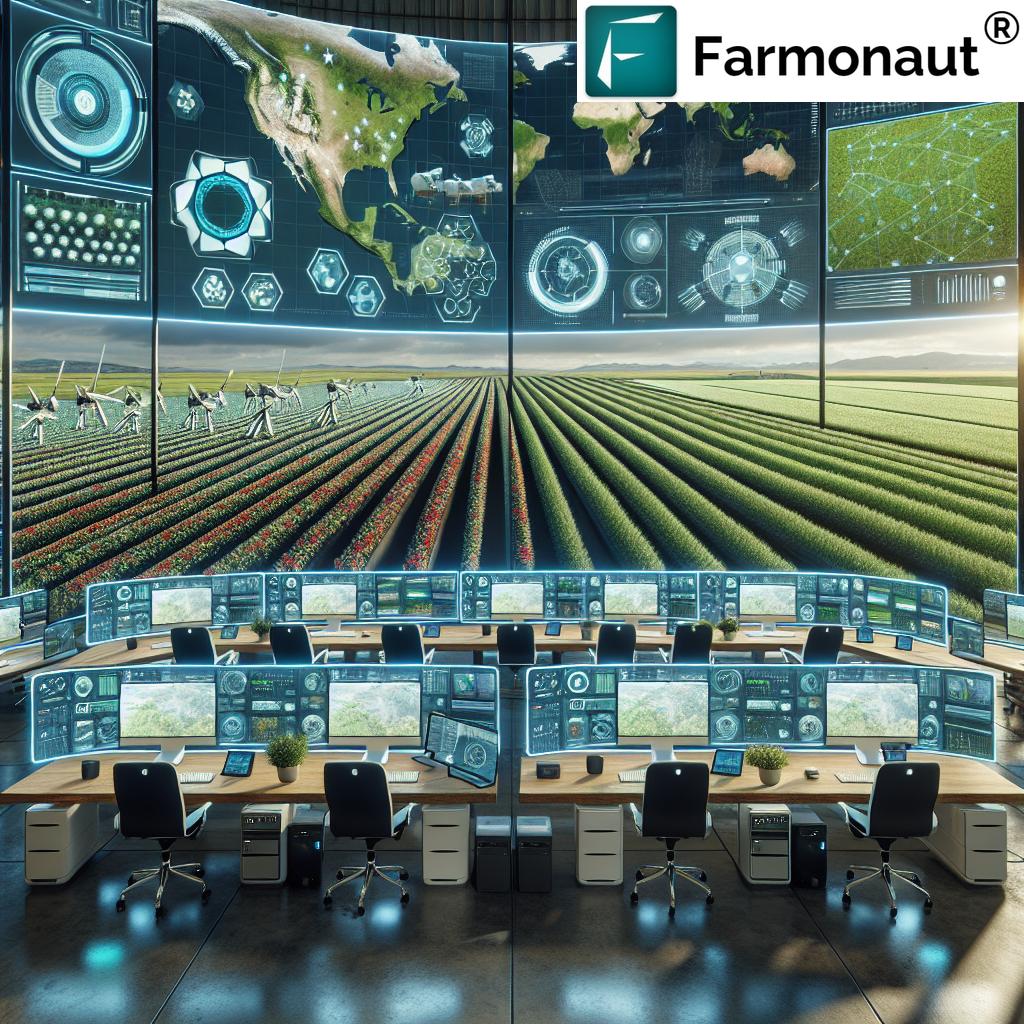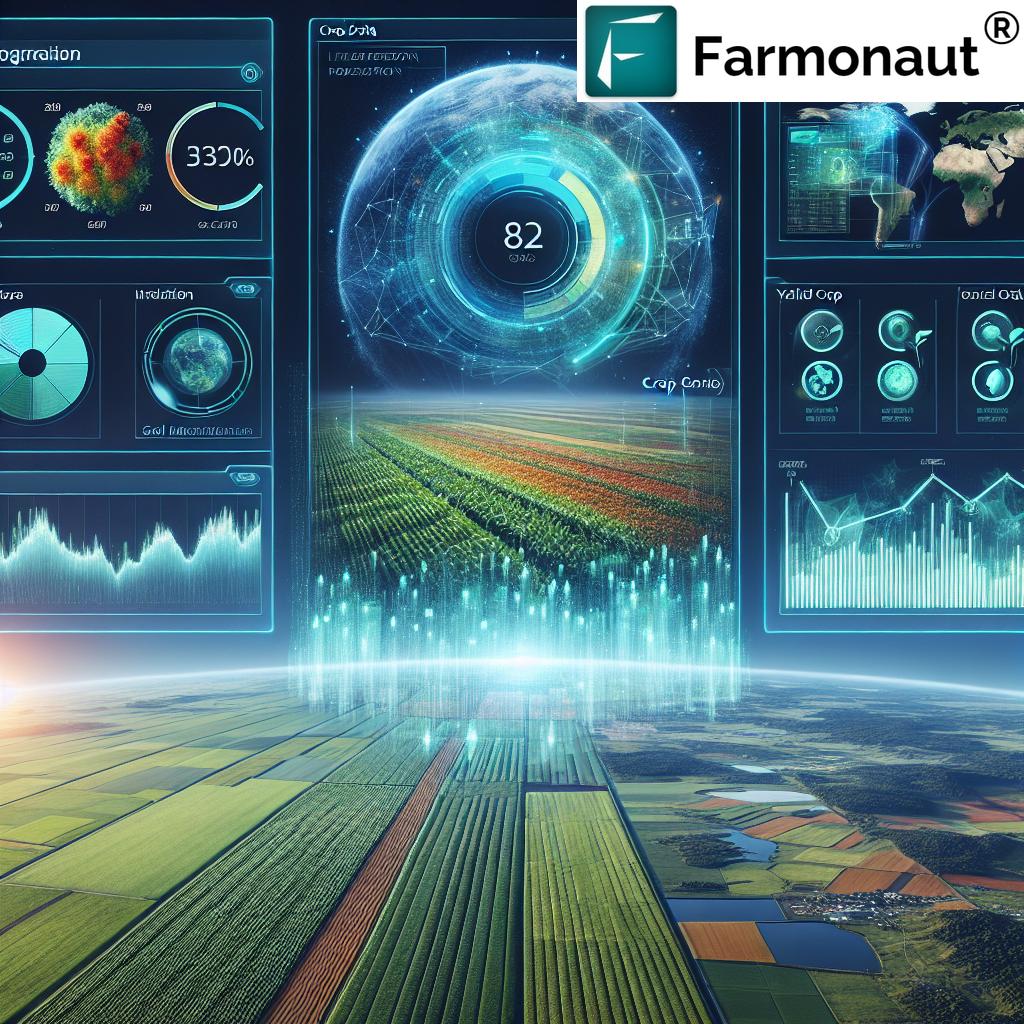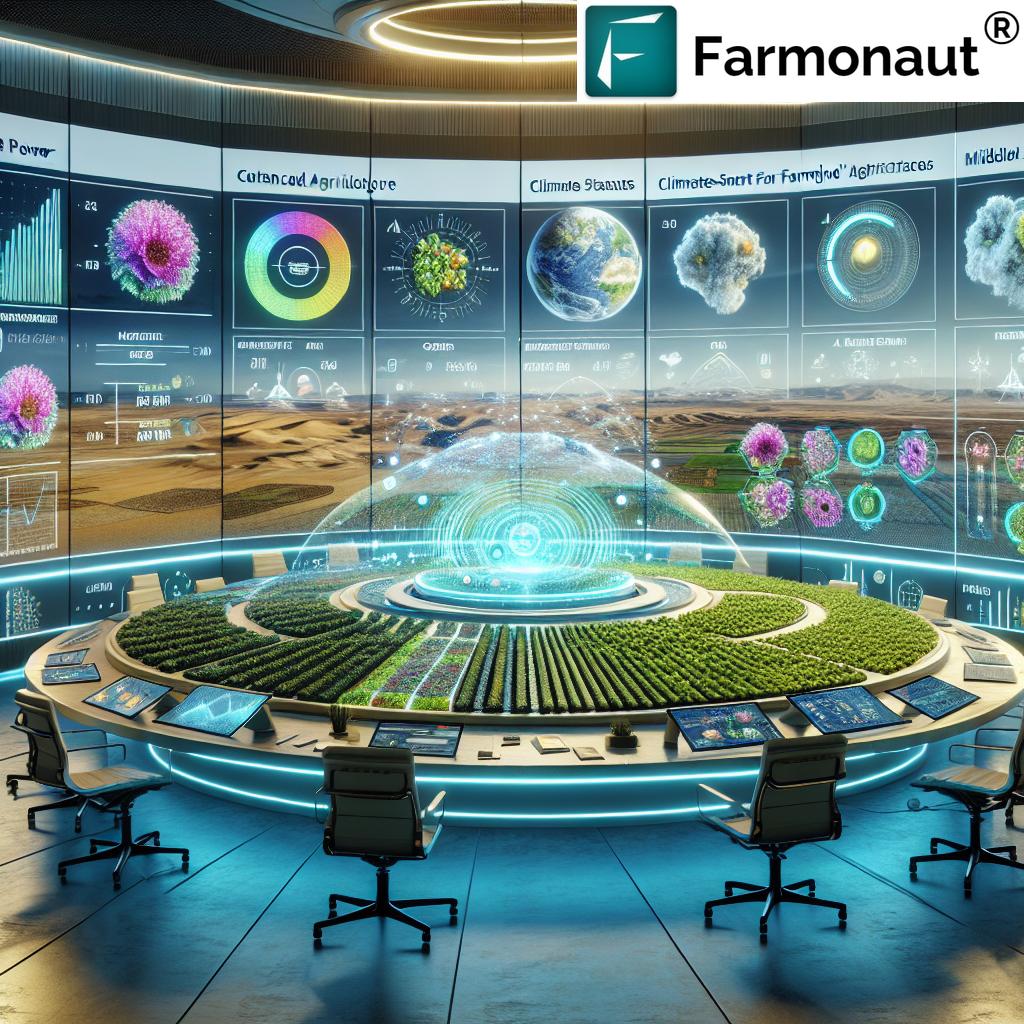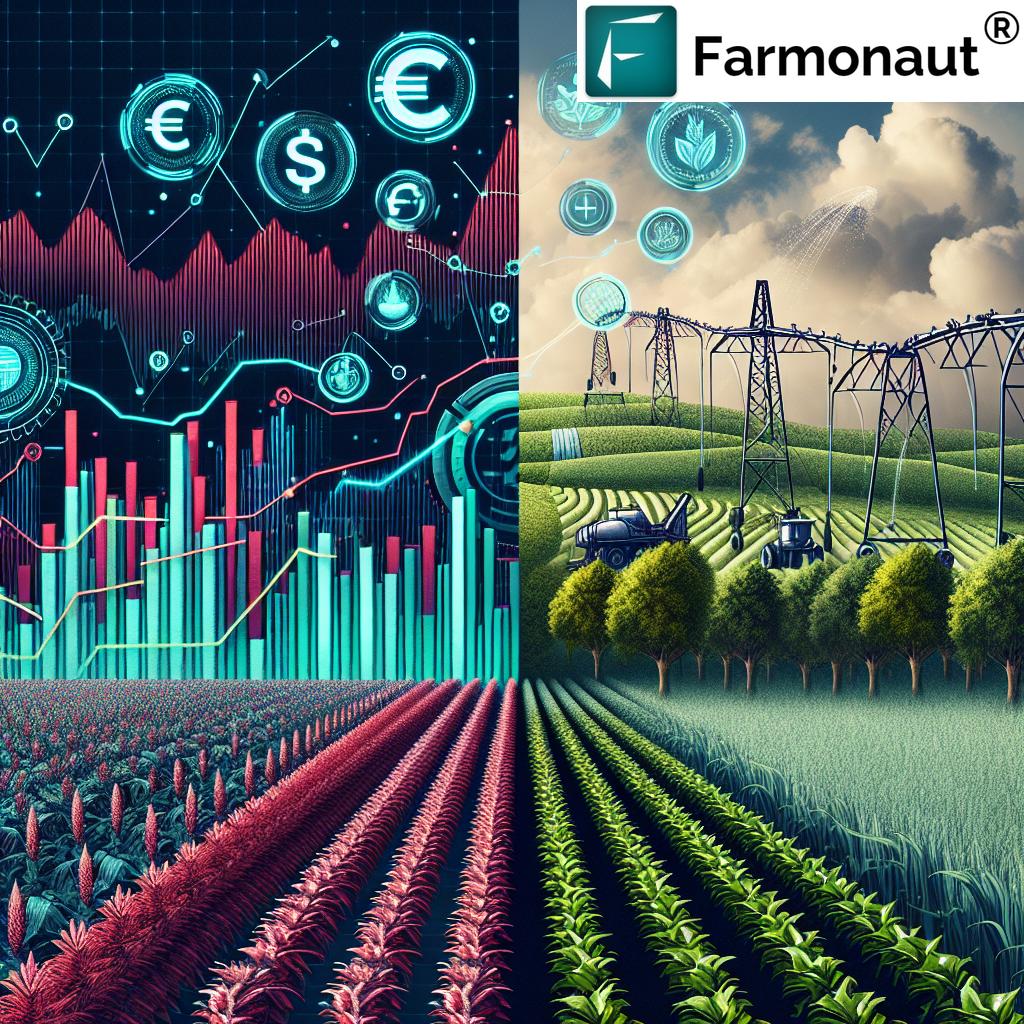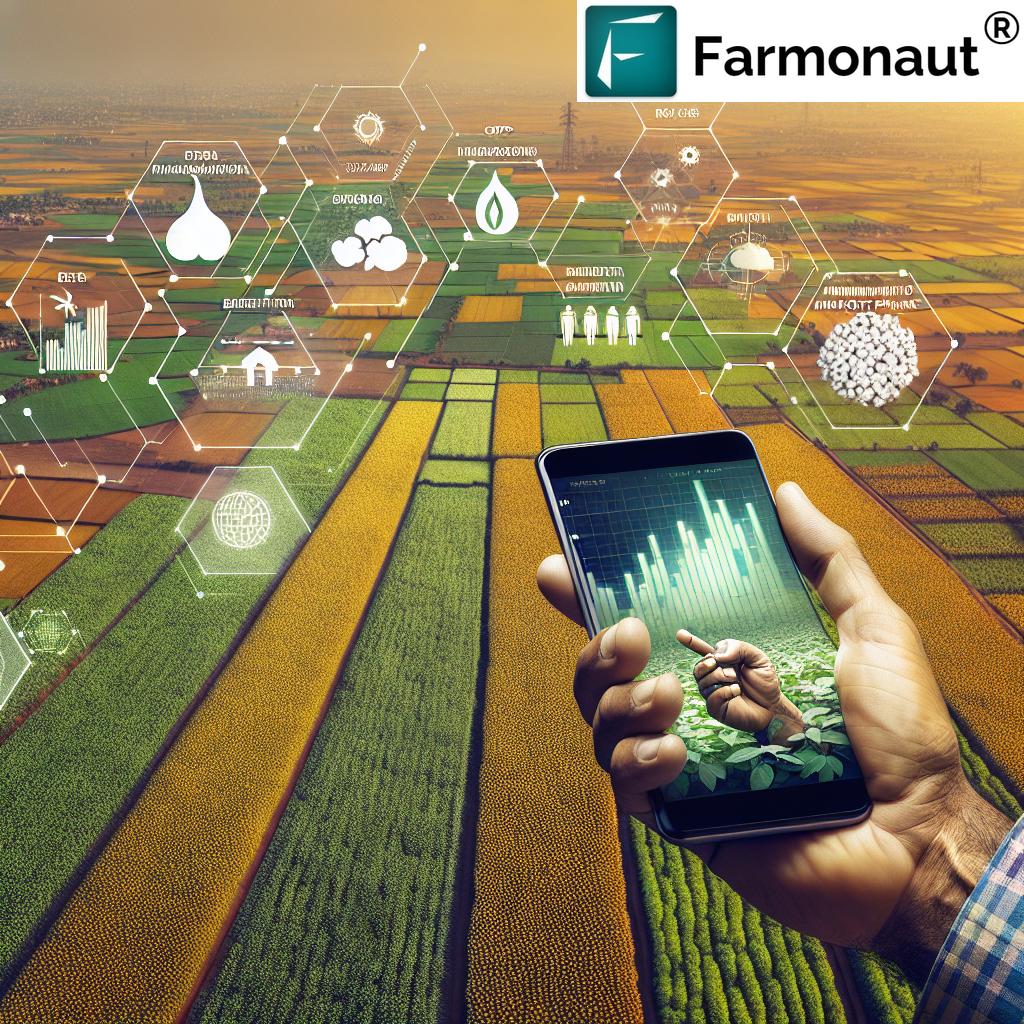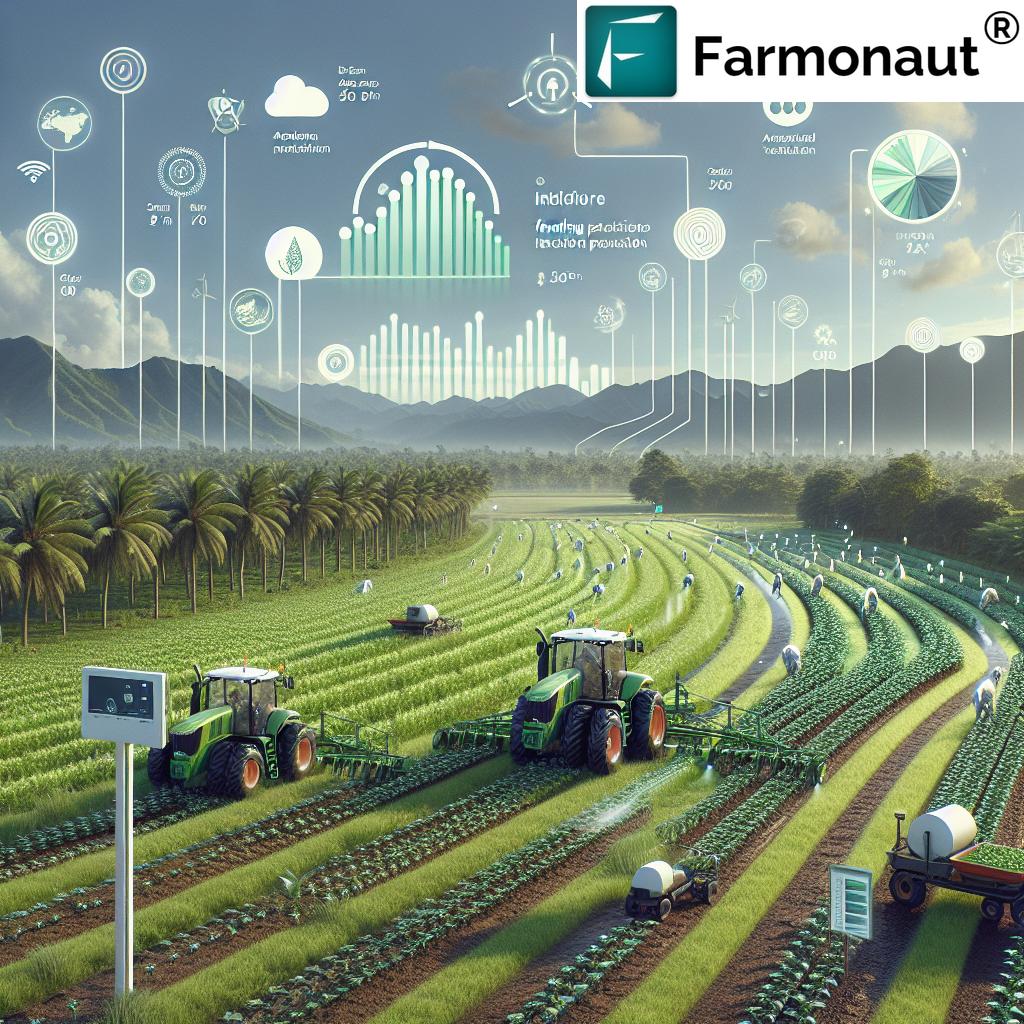Crop-Specific Farming Apps: Transforming India & UK in 2025
“In 2025, crop-specific farming apps are projected to impact 24% of farms in India and 37% in the UK.”
“India will launch over 150 new crop-specific apps by 2025, doubling the digital toolkit for farmers nationwide.”
- Introduction
- The Evolution of Crop-Specific Farming Apps
- How Crop-Specific Farming Apps Work
- Crop-Specific Farming Apps in India and the UK
- Comparative Table: Major Crop-Specific Farming Apps in India & UK
- Technological Features and Innovations in 2025
- Addressing Challenges Unique to India and the UK
- Farmonaut: Satellite Technology for Crop-Specific Insights
- Sustainability and Precision Farming
- Future Directions: What to Expect Beyond 2025
- Frequently Asked Questions
- Conclusion
Introduction: The Digital Revolution in Crop-Farming
In recent years, the agricultural sector has witnessed a transformative shift with the integration of digital technologies geared towards crop-specific farming. As we move into 2025 and beyond, this transformation is most striking in countries like India and the UK, where smart farming apps are reshaping how farmers manage their crops.
Unlike generic farming applications, crop-specific farming apps are designed to address the unique challenges and requirements associated with different crops. They offer tailored information about crop management, pest control, irrigation scheduling, soil health, and weather forecasting. By catering to the biological needs and growth cycles of particular crops, these specialized tools are enhancing yield quality and quantity, and promoting sustainability in cultivation.
This article delves into the evolution, impact, and future of crop-specific farming apps, with a special focus on their relevance in India and the UK for 2025 and beyond. We explore how these smart applications are driving efficiency, empowering farmers, and building resilience in the face of environmental and climate challenges.
The Evolution of Crop-Specific Farming Apps: From Generic to Smart
The evolution of farming apps marks an exciting journey from broad, often generic, solutions to highly specialized applications addressing the unique needs of individual crops. Initially, digital tools in agriculture provided basic weather updates or market price information. However, in recent years, rapid advancements in mobile technology, cloud computing, artificial intelligence (AI), and satellite imagery propelled the rise of smart farming apps.
- 2015–2020: Introduction of general farming apps supporting a variety of tasks, yet lacking depth in addressing specific crop issues.
- 2020–2023: Emergence of crop-specific farming apps that use machine learning, remote sensing, and user-reported data to offer tailored advisories.
- 2024–2025: Integration of IoT sensors, advanced analytics, and blockchain-based traceability. Apps are now indispensable in modern crop-farming across the globe—in both India and the UK.
The transformation these digital tools create is not merely technical; it’s cultural—changing how farmers access knowledge, manage resources, and make real-time decisions to combat climate uncertainty and maximize profitability.
How Crop-Specific Farming Apps Work
Crop-specific farming apps are purpose-built applications designed to deliver insights that cater to the individual needs, cycles, and growth stages of specific crops. These apps achieve this through a sophisticated integration of data sources and technologies, including:
- AI-Powered Analytics: Analyses field data, weather patterns, and historical yields to recommend optimal sowing, irrigation, or pest management.
- Satellite Imagery & Remote Sensing: Provides real-time monitoring of crop health, soil moisture, and pest infestations using multi-spectral imaging (like NDVI).
- IoT Sensor Integration: Synchronizes with soil, weather, and crop sensors to deliver hyper-local advisories.
- Localized Language Support: For extensive reach in India, apps offer regional language options, ensuring every farmer has access.
- Interactive Chatbots & Community Forums: Enables troubleshooting, real-time advice, and peer-to-peer knowledge sharing.
- Blockchain Traceability: Empowers supply chain transparency, guaranteeing quality assurance from field to fork (learn about product traceability).
These digital tools are especially effective as they interpret data from a variety of sources—such as satellite imagery and sensors deployed in the field—to drive precision agriculture that minimizes waste, increases yield quantity and quality, and reduces environmental impact.
For a hands-on experience, you can explore our platform via the Farmonaut App for real-time satellite-driven farm monitoring.

Crop-Specific Farming Apps: India vs. UK in 2025
In both India and the UK, the adoption of crop-specific farming apps is gaining rapid momentum, albeit with distinct drivers and use cases tailored to each country’s agricultural landscape.
India: Revolutionizing Diverse, Smallholder Farming
India is home to disparate climatic zones, soil types, and a wide spectrum of crop varieties. With over half the population dependent on farming, challenges such as fragmented land holdings and limited access to expert knowledge are significant.
Key farming apps in India like Kisan Suvidha, RML Farmer, AgroStar, and many more, bridge this gap by:
- Providing localized advice in multiple regional languages, ensuring timely and effective communication with farmers in their native dialects.
- Delivering real-time alerts on pest infestations, disease outbreaks, and optimal sowing times, thereby preventing losses due to unforeseen crop health issues.
- Leveraging AI-powered analytics to interpret satellite imagery and on-field sensor data, enabling granular management of individual plots.
A farmer using these crop-specific tools can thus make informed decisions about input use, irrigation, and harvest scheduling—significantly improving profitability and reducing resource wastage.
Sensor-based integration facilitates carbon footprint monitoring and ensures sustainable practices, helping Indian agriculture align with international sustainability standards.
Explore real-time AI-based satellite monitoring for your farm:


UK: Scaling Up with Advanced Digital Integration
Meanwhile, the UK leverages a more consolidated farming sector with advanced digi-tech infrastructure. Farming apps UK, such as AgroSense and Farmwizard, focus on:
- Precision agriculture through IoT devices, satellite data, and AI-powered predictive analytics.
- Real-time soil moisture, nutrient content, and plant health monitoring, supporting compliance with strict environmental sustainability regulations.
- Harvest forecasting and resource optimization, reducing operational costs while minimizing environmental impact.
British farmers can thus benefit from highly accurate insights and reliable weather forecasts, helping them mitigate seasonal risks and make agile farming decisions. Farming apps UK frequently integrate remote sensing for satellite-verified farm insurance claim processes, streamlining access to financial support.
“In 2025, crop-specific farming apps are projected to impact 24% of farms in India and 37% in the UK.”
Comparative Table: Major Crop-Specific Farming Apps in India & UK (2025)
| App Name | Country | Key Crops Supported | Notable Features | Estimated User Base (2025) | Projected Adoption Growth (%) |
|---|---|---|---|---|---|
| Kisan Suvidha | India | Wheat, Rice, Cotton, Sugarcane | Localized advisories, multi-language support, pest & disease alerts, weather forecasting | 2.4 million | 29 |
| RML Farmer | India | Maize, Soybean, Pulses, Oilseeds | AI-driven recommendations, market prices, micro-climate forecasting | 1.8 million | 24 |
| AgroStar | India | Fruits, Vegetables, Cotton, Wheat | Crop-based advisory, pest & nutrient management, e-commerce integration | 3.1 million | 33 |
| AgroSense | UK | Barley, Wheat, Oilseed Rape, UK Vegetables | Remote sensing, real-time crop health, yield prediction, compliance monitoring | 95,000 | 41 |
| Farmwizard | UK | Potatoes, Cereals, Pasture Grass | IoT integration, farm management, livestock tracking, automated reporting | 84,000 | 36 |
| CropIn | India | Multiple cash crops, Rice, Sugarcane | AI analytics, satellite monitoring, blockchain traceability | 710,000 | 40 |
| Yagro | UK | Wheat, Barley, Oilseeds | Market data aggregation, cost benchmarking, sustainability tracking | 61,000 | 28 |
Technological Features of Modern Crop-Specific Farming Apps (2025)
The smart farming apps dominating India and the UK in 2025 go far beyond old-fashioned web portals. Recent innovations have made these tools both affordable and scalable for farmers of all operation sizes. Noteworthy tech advancements include:
Satellite & Remote Sensing
- Near real-time crop health monitoring using high-resolution, multispectral satellite imagery.
- Soil condition analysis and detection of crop stressors before symptoms manifest.
- Precision field zoning for targeted input application.
AI-Driven Analytics & Forecasting
- AI models predict pest outbreaks, recommend optimal irrigation schedules, and analyze stress from weather extremes.
- Yield prediction via historical and current data integration.
- Farmers are empowered to take action on hyper-local data, not averages.
Blockchain-Based Traceability
- Ensures accountability and transparency in the food supply chain for both Indian and UK farms.
- Reduces fraud and improves consumer trust (see blockchain traceability solutions).
Mobile Accessibility and Multi-Language Support
- Enables even remote smallholders to manage high-tech farms from basic smartphones in their native languages.
- Facilitates access to expert agronomy knowledge without traditional barriers.
Fleet and Resource Management
- Satellite-enabled fleet management systems improve machinery utilization and agro-logistics.
- Automated tracking of field assets and input consumption, reducing waste and operational costs.
API and Platform Integration
- Seamless integration with other cloud apps, custom farm management software, and ERP tools.
- Open API access for developers: Farmonaut API (Developer Docs).
How Crop-Specific Farming Apps Address Regional Challenges
Crop-specific farming apps are meticulously designed to address not just general agricultural difficulties, but also the unique challenges faced by farmers in India and the UK.
India:
- Diverse climatic zones: AI models trained on regional weather and soil data offer timely advisories in multiple languages.
- Disparate farm types and sizes: From large plantations to marginal family-run plots, apps cater to varying scales of operation.
- Risk reduction through micro-climate forecasting: Real-time satellite monitoring (explore via large scale farm management tools) enables proactive intervention.
- Community knowledge sharing: Embedded forums and chatbots create a support ecosystem accessible to even the smallest farmer, democratizing agricultural expertise.
UK:
- Environmental compliance: Integration with sustainability frameworks and environmental monitoring tools for soil and water health.
- Resource optimization: Advanced IoT and fleet management solutions (see fleet management case) streamline large-scale farming operations.
- Precision pest control: AI-driven predictive analytics minimize pesticide use, protecting surrounding ecosystems and crop health.
Farmonaut: Satellite Technology for Advanced Crop-Farming Insights
At Farmonaut, we are committed to providing affordable, accessible, and cutting-edge satellite-based solutions for agriculture and beyond. Our innovative platform empowers farmers, businesses, and governments by integrating advanced technologies:
- Real-Time Satellite Monitoring: We provide actionable insights into vegetation health (NDVI), soil conditions, and more.
- Jeevn AI Advisory: AI-driven, crop-specific recommendations—tailored to each field or region based on satellite and sensor data.
- Blockchain-Based Traceability: Transparent product journey, fostering trust and authenticity in agricultural supply chains.
- Environmental Impact Tracking: Enables compliance with sustainability standards by offering carbon footprint monitoring and actionable advice for resource optimization.
- Fleet and Resource Management: Enhancing operational efficiency for both smallholders and large enterprises.
- API and App Integration: Simple onboarding via web and mobile apps, as well as robust API access for developers.
Our technology is accessible through web and mobile applications, supporting operations from single plots to extensive farmlands. Whether tracking crop health, optimizing irrigation, or managing sustainability, our platform places smart, data-driven decisions in the farmer’s hands.
Sustainability and Precision: The Smart Future of Farming
Crop-specific farming apps go hand-in-hand with the global drive towards sustainability and resource efficiency. By leveraging precision farming enabled by these technologies, farmers in India, the UK, and beyond can:
- Reduce water and input wastage: Exact irrigation scheduling and pest management minimize chemical runoff, helping protect biodiversity and water resources.
- Combat climate change: Data-based interventions help adjust practices for seasonal variability and extreme weather, building greater climate resilience.
- Boost productivity and profitability: Smarter decisions yield better quality crops and larger harvests, elevating farmer incomes.
- Enhance soil health: Regular monitoring catches early signs of nutrient depletion or erosion, allowing for timely restoration (crop plantation advisory).
Effectively, every crop-specific farming app is a step toward balancing food security, environmental stewardship, and rural prosperity.
The Future of Crop-Specific Farming Apps: 2025 and Beyond
The journey toward agricultural digitalization is only accelerating. Looking ahead to 2025 and beyond, several key advancements are set to shape crop-specific farming apps in the coming years:
- Drone Integration: Enhanced remote sensing with drones will complement satellites, providing even finer real-time monitoring for pest, disease, and moisture detection.
- Advanced AI Algorithms: Next-gen models will predict not just harvest yields, but disease outbreaks, input needs, and climate risk mitigation strategies at the level of individual fields.
- More Robust Blockchain Traceability: Blockchain will underpin food authentication and sustainable sourcing at scale for both Indian and UK agriculture.
- Greater API Ecosystem & Cross-Platform Access: Open APIs will tie farm apps together, building vertically integrated, end-to-end digital farm ecosystems.
- Universal Accessibility: Cheaper smartphones, improved rural broadband, and user education programs mean no farmer is left behind.
Both India and the UK are well-positioned to lead in this new era of digital crop-farming, with their diverse agricultural heritage and strong appetite for innovation.
Frequently Asked Questions: Crop-Specific Farming Apps in India & UK
-
What is a crop-specific farming app?
A crop-specific farming app is a digital tool designed to provide tailored, actionable insights based on the growth cycles and biological needs of individual crops—helping farmers optimize yield, health, and sustainability.
-
How are farming apps impacting India and the UK in 2025?
In India, these apps offer localized, multi-language support and AI-powered advisories, critical for diverse climates and smallholder challenges. In the UK, they prioritize precision resource management, compliance, and sustainable practices using advanced IoT and analytics.
-
Can smallholders use crop-specific smart farming apps?
Absolutely. With mobile-first design and local language interfaces, smallholders can access knowledge and tools once reserved for large-scale farms, leveling the playing field globally.
-
What are some leading smart farming apps in India and the UK?
In India: Kisan Suvidha, RML Farmer, AgroStar, and CropIn. In the UK: AgroSense, Farmwizard, and Yagro. Farmonaut offers satellite-based real-time insights for both regions.
-
How do these apps contribute to sustainability?
They enable precise resource use (water, fertilizers, pesticides) and help reduce environmental impact via AI and remote sensing, supporting sustainable crop-farming and compliance with global standards.
-
Where can I access advanced crop monitoring and management tools?
For satellite-powered insights, try Farmonaut’s web, Android, or iOS apps. Developers can connect via the Farmonaut API.
-
Will crop-specific farming apps replace traditional extension agents?
No, these tools are designed to complement, not replace, expert advisors by providing timely, context-aware digital support to farmers everywhere.
Conclusion: Embracing the Digital Revolution in Crop-Farming
Crop-specific farming apps have emerged as indispensable tools in the hands of farmers in India, the UK, and across the globe. As we step into 2025 and beyond, these digital applications are driving efficiency, sustainability, and profitability in crop cultivation.
By providing actionable insights, enabling precision agriculture, and reducing resource waste, they are setting the new standard for modern agriculture. The shift towards digital, smart farming apps will help countries address complex challenges such as climate change, input cost pressure, and food security. The continuous integration of emerging technologies like AI, drones, and blockchain will unlock new possibilities for every stakeholder in the agricultural value chain.
Whether you are a smallholder in India’s heartland, a large-scale grower in the UK, or a policymaker committed to sustainability, embracing these smart, crop-specific tools is essential for future-ready farming.
Explore the power of satellite technology for your fields with the Farmonaut App:



For custom solutions, large-scale monitoring, or to integrate your platform with advanced satellite-driven analytics, learn more about our large scale farm management.
The future of crop-farming is digital, intelligent, and inclusive—let’s cultivate it together.


